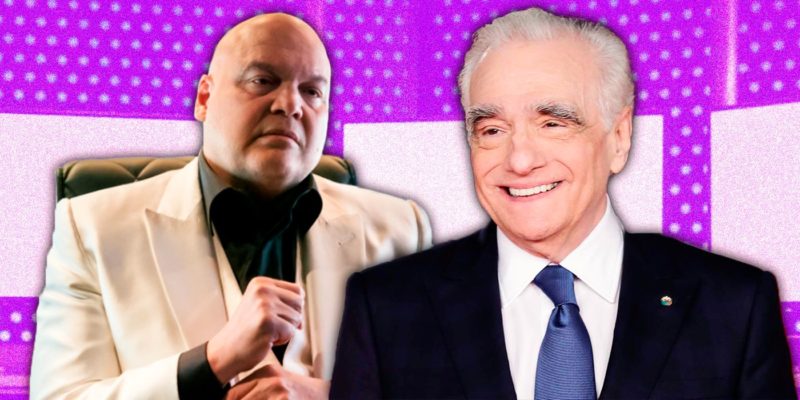
[ad_1]
Gangster films were derided before filmmakers like Scorsese remade the genre, and he could give the same treatment to the MCU with Kingpin.
Martin Scorsese periodically makes headlines with his criticisms of the Marvel Cinematic Universe, eventually establishing the legendary director as the face of the opposition where disputes between the commercially successful franchise and critical prestige are concerned. Most recently, Spider-Man actor Tom Holland suggested that Scorsese might feel differently if he were to work with an MCU production himself, and the suggestion raises an interesting point. Scorsese directing an MCU film would be an intriguing prospect. In fact, given the director made his career on revolutionizing the gangster film genre, there may be one MCU property he is absolutely perfect for: Kingpin.
The larger conversation pitting commercially successful mainstream movies in opposition to critically and artistically-focused features is one that dates back to the earliest days of moviemaking, but Scorsese first established himself as a face for the argument when he told Empire magazine that he believed Marvel movies “are not cinema.” The criticism spurred on tremendous ire from Marvel fans, as it seemingly painted dozens of films with the same broad brush, dismissing the notion that any hard artistic merit in their own right. But regardless of the legitimacy of Scorsese’s criticisms, there is no reason they must necessarily always apply to what Marvel films could be.
Indeed, the gangster film genre with which Scorsese is practically synonymous did not always have the robust reputation for artistic merit it has today. Seen as salacious and indulgently violent, it is only because of directors like Scorsese making films like Mean Streets, Goodfellas and The Departed that the genre ever had the chance at such widespread critical acclaim. With Scorsese’s help, the MCU could gain the same reputation. And with the Kingpin, the comparison to the gangster film genre could not be more natural.
The Kingpin of the comics earned his title by taking leadership over all of the major establishments of organized crime in New York City. At first serving primarily as a Spider-Man villain before featuring in Daredevil comics just as heavily, the character gradually expanded into a complex and interesting villain in his own right. Vincent D’Onofrio’s performance as the character, at first in Netflix’s Daredevil and now in the mainstream MCU with Hawkeye, further fleshed out Kingpin’s potential to be an engaging and sympathetic look at a morally depraved individual who believes the atrocities he commits ultimately serve the good of the world.
It seems as unlikely for Scorsese to direct an MCU movie as it does for Kingpin to star in a movie of his own altogether, but the two are a match made in heaven. Scorsese’s films almost universally feature morally gray, anti-heroic or downright depraved protagonists whose willingness to sink to moral depths provides psychological complexity too often lacking in mainstream media. Indeed, when D’Onfrio’s Kingpin first appeared in 2015, he was widely regarded as a refreshing change of pace from Marvel’s forgettable and disposable villains of the silver screen.
There is no reason that commercial success and “real cinema” need to be diametrically opposed. Scorsese’s own The Wolf of Wall Street and The Irishman had budgets of over one-hundred million dollars, and there is nothing intrinsically necessitated by a film’s production by Marvel that demands it fills criteria mutually exclusive with artistic integrity. Such a partnership between Scorsese and Marvel could help allay a century-old argument that seldom does much more than chase its own tail. It may sound ridiculous, and there are doubtless plenty who would scoff at the initial notion of an MCU Scorsese production. But anyone who knows the director and anyone who knows the Kingpin can testify that a Martin Scorsese-directed Kingpin movie would be a success across any conceivable metric.
About The Author
[ad_2]





